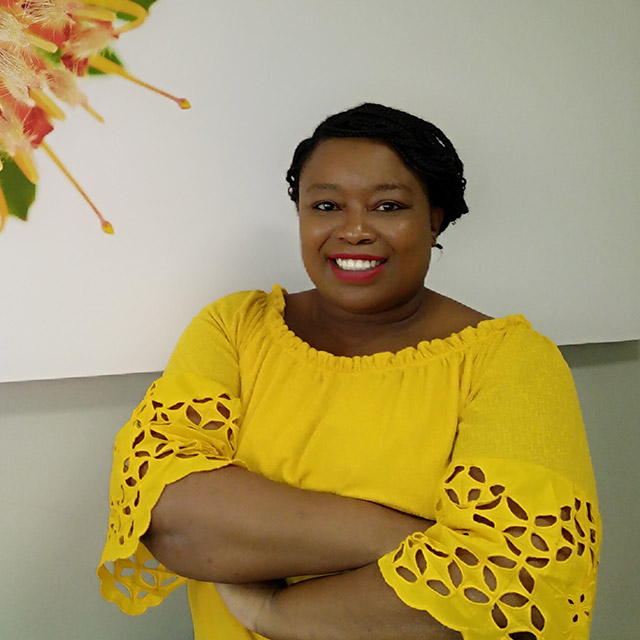
A simple school project of germinating a bean in cotton wool inspired a lifelong passion for nature and science in Dr Ethel Phiri, an award-winning young researcher in botany and zoology, and lecturer at Stellenbosch University’s (SU’s) Faculty of AgriSciences.
“I was still in primary school, but I spent all my time trying to germinate as many seeds as I could find,” Ethel recalls. “Of course, at the time, I did not know that some seeds required specific conditions to germinate, e.g. fire or stomach acid scarification. I learned this from my biology teacher in high school – Mrs Andrews was the teacher that inspired me to be a botanist, just from the way she taught the subject. I have come full circle from the day I germinated a bean, as I now work on mostly legumes.”
Ethel, who grew up in Mpumalanga and obtained her BSc and BSc honours degrees in biochemistry and botany at Rand Afrikaans University (now University of Johannesburg), became a Matie in 2005 when she enrolled for a master’s degree in sub-Antarctic ecology at SU.
“I applied for a job as a field assistant on a Marion Island expedition but went as a researcher instead after SU phoned to ask if I was interested in doing my master’s,” says Ethel.
She spent a total of 13 months on the remote sub-Antarctic island and credits the isolation and lack of modern comforts for her strong focus and determination as researcher.
“Being in isolation from society and civilisation for so long built me up to be the focused and determined person that I am. I also learned to be innovative in the way that I approach research. It was also great that I had one of the leading scientists as a supervisor. Prof Steven Chown is one of the people that played a pivotal role in shaping me into the researcher that I am today – independence, critical thinking and systematic reasoning were always encouraged.”
Her hard work paid off and Ethel’s MSc thesis titled ‘Species occupancy, distribution and abundance: indigenous and alien invasive vascular plants on sub-Antarctic Marion Island’ won the prestigious South African Association for the Advancement of Science (S2A3) Medal for the best MSc thesis at SU in 2008. Ethel’s original research also led to her being recognised as one of Mail & Guardian’s ‘200 Young South Africans’ in 2010.
Following her master’s, Ethel completed a PhD in zoology at SU in 2014 and worked as a postdoctoral research fellow for the next few years.
“I wish I could say that postgraduate studies are an easy journey, but it’s tough and should only be entered into with passion and determination,” she says. “Due to unforeseen developments, I was faced with either quitting my doctoral studies or pushing on and forward. When I made the choice to continue, I took a gamble and my plant research had to be placed on hold and I ended up completing a PhD in zoology.”
Ethel’s gamble paid off – her PhD research, which investigated the evolutionary development and history of the Afrotropical freshwater crab fauna, yielded at least five freshwater crab species that were new to science.
Since January 2019, Ethel has been employed as a lecturer and researcher at the Department of Agronomy, within SU’s Faculty of AgriSciences, where she continues to inspire students to be their best, especially as a postgraduate student supervisor.
“My students and I predominantly research indigenous and future crops as well as the sustainable crop production under controlled environments,” she explains. “I aim to bring together transdisciplinarity in crop production by involving social scientists in understanding the role of indigenous knowledge systems in subsistence and small-scale crop production. Indigenous crops are rich in genetic diversity but have been neglected in favour of the production of non-indigenous crops. However, in recent years, the value of these so-called ‘orphaned crops’ has been realised, especially in trying to achieve some of the sustainable development goals, such as ‘no poverty’ and ‘zero hunger’. Because of my interests in promoting Africa as a research-forward continent, my current research is on indigenous orphan crops and their potential as a solution to food and nutrition security in Africa.”
Looking forward, Ethel hopes to climb the academic ladder to full professorship. “But I am in no rush; I give myself seven years. It is important to follow your own path, but make sure that your path converges with others and to be kind to those that you meet along the way,” she adds. “My students are my legacy – when they become successful, I will also be successful.”
- By Birgit Ottermann -